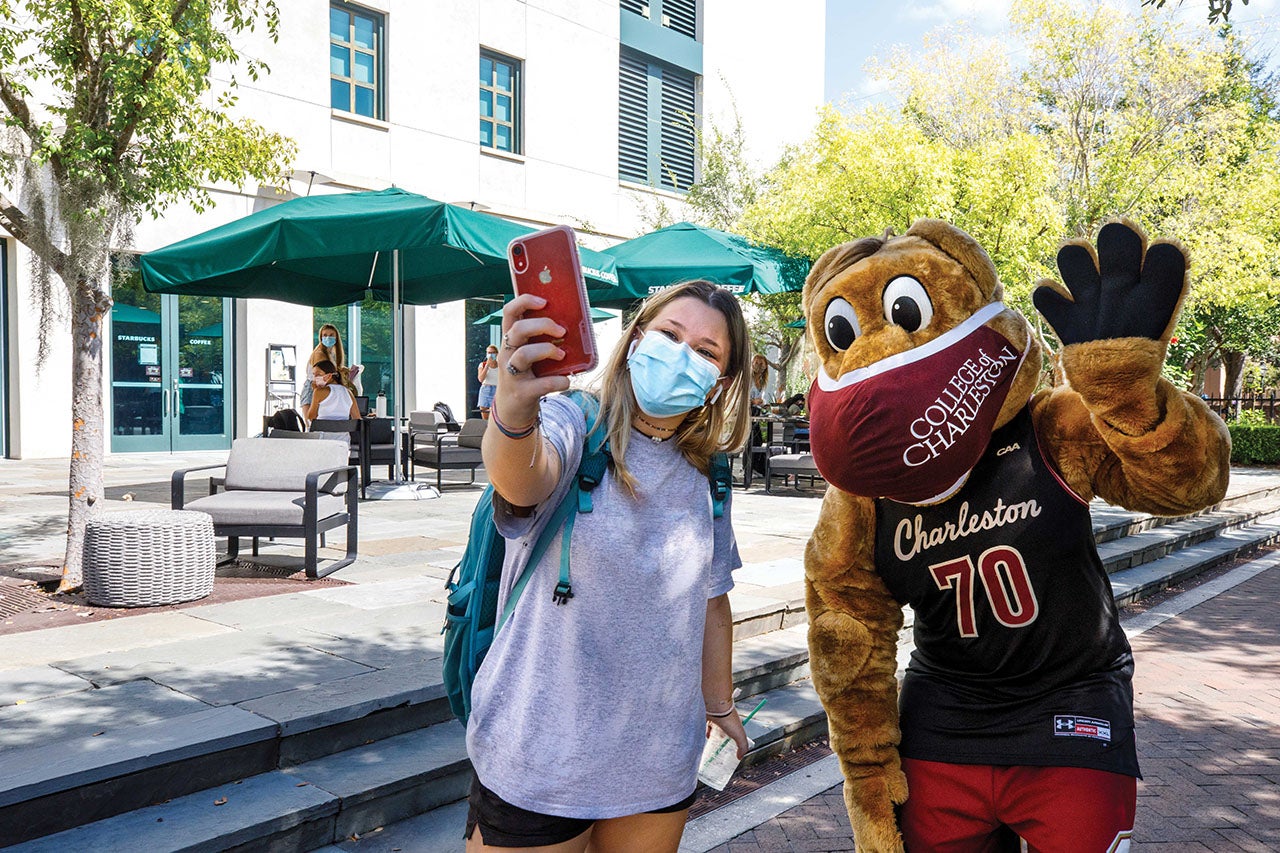The global pandemic has impacted lives everywhere, including on college campuses. Universities have had to walk a tightrope between providing a meaningful academic experience to students and mitigating the spread of COVID-19.
College of Charleston faculty and staff have worked tirelessly this fall to safely open the campus to students. The institution launched “Back on the Bricks: The College of Charleston Plan for Fall 2020,” a comprehensive plan outlining detailed protocols and procedures for all facets of campus life, from classroom instruction to recreation to residence halls and dining facilities.
“For many students, having that on-campus experience is a priority – the opportunity to interact in classrooms, in the library, in Rivers Green and, of course, in the Cistern Yard,” says Alicia Caudill, executive vice president for student affairs. “But in order to give them a safe experience, we had to make changes to how we conduct in-person instruction, hang out in dining halls and visit with friends on and off campus.”
To help keep the CofC community healthy, Back on the Bricks put into effect a number of steps aimed at minimizing the risk of exposure to the coronavirus, including:
- Implementing a hybrid learning format of in-person and online instruction to reduce the occupancy of classrooms by 30 to 40 percent to allow for proper social distancing.
- Using the Everbridge app to send out daily wellness check notifications to help students, faculty and staff monitor their health before coming to campus or participating in any in-person classes or on-campus activities.
- Requiring students living on campus to provide COVID-19 test results prior to moving into residence halls in September. The College also held free COVID-19 testing events for students, faculty and staff throughout the fall 2020 semester. Students living on campus who tested positive relocated to designated isolation rooms for the duration of their illness.
- Forming a partnership between Student Health Services and the Medical University of South Carolina (MUSC) to provide enhanced health care to students, including free access to MUSC’s 24/7 virtual urgent care platform.
- Implementing new, rigorous protocols for the Facilities Management personnel tasked with cleaning classrooms, dining halls and residence halls, with a particular focus on high-touch areas such as door handles and restrooms.
- Instituting face-coverings and social-distancing policies and encouraging members of the CofC community to sign the Cougar Pledge, promising to abide by these measures. An addendum to the Student Code of Conduct limiting social gatherings off campus to 10 people or less was added to dissuade students from attending large parties.
- Creating an online COVID-19 Dashboard to help keep the CofC community informed about active COVID-19 cases among students, faculty and staff – which, fortunately, have been very low at press time.
With support from student-leaders like Student Government Association President Jeremy Turner, who was instrumental in the development and promotion of the Cougar Pledge, students, faculty and staff adjusted to the new normal of CofC life when students returned to campus in September.
“I think that these measures have been extremely successful and have blown even my highest expectations out of the water,” says Turner. “I think this is a product of the outstanding leadership of President Andrew Hsu, Provost Suzanne Austin, Dr. Alicia Caudill and our entire student body, who bought into these safety measures in order to keep us safe this semester.”




